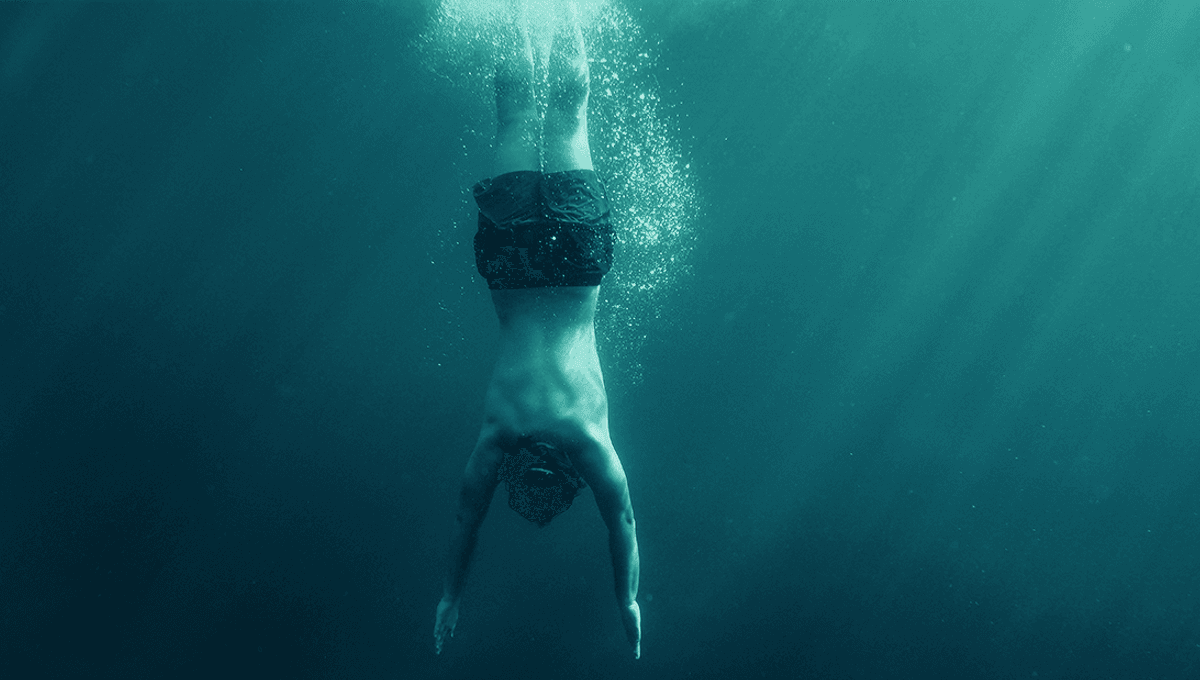
You may have noticed, on a lazy day spent in a swimming pool, that it is somewhat easier to hold your breath for longer when you are underwater.
This may seem weird, given the increased pressure pushing on your chest. But it’s a phenomenon, and one that we share with our mammal friends, known simply as the mammalian dive reflex, or mammalian dive response. When mammals are submerged in water a number of automatic physiological changes take place. This is likely triggered by sensory information (your face is wet) conveyed by the trigeminal nerve.
When the response is triggered, you stop breathing automatically, your heart rate slows, and your peripheral vascular resistance increases.
“With increased vascular resistance, the body can save oxygen stores for the vital organs, including the brain and the heart, while shunting blood away from inactive muscle groups,” a review of the topic explains. “The additional response of bradycardia again preserves oxygen reserves by decreasing the heart rate, thus decreasing the heart’s workload, which utilizes less oxygen.”
The record for holding your breath underwater (amongst humans) is an impressive 24 minutes and 37 seconds, set by freediver Budimir Šobat in 2021. He beat the next-longest breath hold by just 34 seconds.
To achieve these sorts of times without breathing, however, it is first necessary for the divers to hyperventilate on pure oxygen, before being submerged. The urge to breathe is largely controlled by chemoreceptors attempting to maintain the right levels of oxygen and carbon dioxide in the blood.
“During a breath hold, the level of blood CO2 rises, and the O2 declines. The initial increase in the urge to breathe – let’s say 30 seconds into the breath hold – primarily comes from the rising CO2. At a particular threshold, the chemoreceptors also respond to the declining O2, at which point the drive to breathe increases dramatically,” Anthony Bain, Associate Professor in Kinesiology at the University of Windsor, explained in a piece for The Conversation.
“Eventually, the urge to breathe intensifies to the point that the diaphragm (the primary respiratory muscle) contracts involuntarily – referred to as an involuntary breathing movement. This is the point at which the untrained breath holder will typically break and begin to breathe again (around three minutes if motivated and oxygen-unassisted).”
By breathing in pure oxygen beforehand, the reflex to breathe can be delayed, allowing people (and by “people” we mean trained divers with years of training) to stay underwater for up to the 20 minute mark. Unassisted by pre-breathing oxygen, times are still impressive, with the record holder holding their breath for 11 minutes 35 seconds.
“Though the dive reflex is a complicated process, it characterizes the simplicity of its overall goal, preserving life by physiologic adaptation in response to the current environment,” the review adds.
“The answer to why this complicated dynamic reflex takes place is quite simple: to preserve life.”
All “explainer” articles are confirmed by fact checkers to be correct at time of publishing. Text, images, and links may be edited, removed, or added to at a later date to keep information current.
Source Link: Why Can Humans Hold Our Breath For Longer When Underwater?